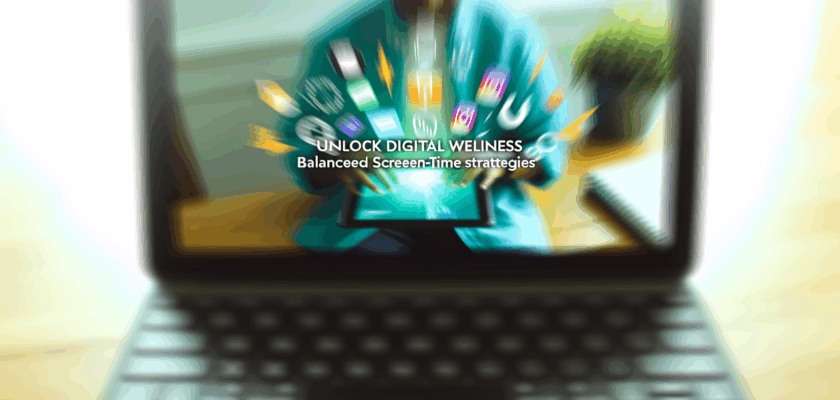In our increasingly digital world, the concept of digital wellness has become paramount. With the proliferation of screens in our daily lives—be it through smartphones, tablets, or computers—striking a balance between screen time and other aspects of life is essential for maintaining physical and mental health. This article explores the importance of digital wellness and presents effective strategies for managing screen time, fostering a healthier relationship with technology.
Understanding Digital Wellness: The Importance of Balance
Digital wellness refers to the state of physical and mental health that results from balanced technology use. As screens become integral to communication, education, and entertainment, individuals often find it challenging to step away from their devices. The importance of balance cannot be overstated, as excessive screen time has been linked to a variety of health issues, including eye strain, disrupted sleep patterns, and increased anxiety. Understanding these implications is the first step towards achieving a more balanced digital life.
Moreover, the impact of screen time extends beyond individual health; it also affects relationships and social interactions. When individuals choose to engage with their screens rather than the people around them, they may inadvertently diminish the quality of their personal connections. Cultivating digital wellness encourages one to be more mindful of their screen habits, promoting healthier interactions within families and communities. Recognizing the significance of balance can help individuals be more present in their daily lives while still enjoying the benefits technology has to offer.
Finally, digital wellness is not merely about reducing screen time; it is about enhancing the quality of the time spent on devices. Engaging in activities that promote positive digital experiences—such as educational content consumption, creative expression, or social connectivity—can enrich our lives rather than detract from them. By approaching technology with intentionality and balance, we can harness its power for good while mitigating its potential downsides.
Effective Strategies for Managing Healthy Screen Time
To foster digital wellness, it is essential to establish effective strategies for managing screen time. One practical approach is to set specific limits for daily usage. By utilizing built-in screen time trackers available on most devices, individuals can monitor their usage patterns and adjust accordingly. Establishing designated times for device use can help create boundaries, ensuring that technology does not encroach on family time, meals, or bedtime routines. Additionally, implementing a "digital detox" period—where one refrains from screens for a set duration—can provide a refreshing break and help reset habits.
Another effective strategy is to curate content intentionally. Instead of passively scrolling through social media or engaging with unproductive content, users can focus on utilizing their devices for educational purposes, skill development, or connecting with supportive communities. Subscribing to podcasts, online courses, and informative blogs can transform screen time into productive time, fostering personal growth. By consciously selecting what to consume, individuals can enhance their digital experiences and reduce the risk of mindless screen time.
Lastly, promoting physical activity and outdoor time can significantly counterbalance screen use. Engaging in regular exercise or outdoor activities not only benefits physical health but also serves as a natural antidote to excessive screen time. Scheduling regular breaks during prolonged usage—such as "screen breaks" every hour—can refresh the mind and body, preventing fatigue and enhancing focus. By integrating physical movement into daily routines, individuals can find a harmonious balance between their digital and physical worlds.
Achieving digital wellness is a journey that requires mindfulness, intention, and commitment. By understanding the importance of balance and implementing effective strategies for managing screen time, individuals can cultivate healthier relationships with their devices. As technology continues to evolve, it is crucial to prioritize our well-being in a digital age. Embracing these balanced screen-time strategies can ultimately lead to improved mental health, enhanced productivity, and enriched personal relationships. Let us aim for a future where technology serves as a tool for growth rather than a source of stress.

